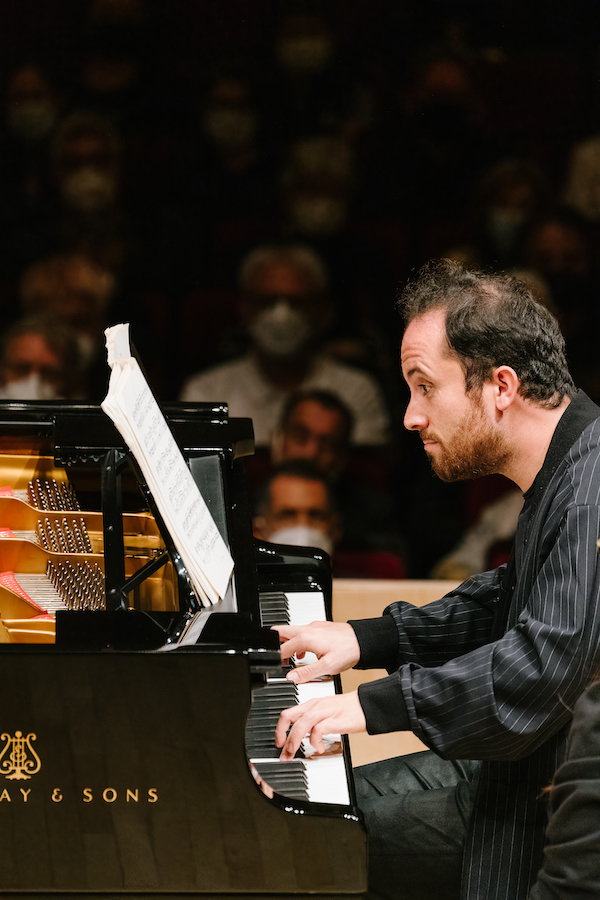Levit brings fire and inspirational insight to Shostakovich’s Preludes and Fugues

Igor Levit is the kind of artist who seems to find a mere great performance insufficient. He has prodigious technique and is a deep thinker who likes a challenge. But he can sometimes just as easily get lost in self indulgence even as he can reveal new and meaningful ideas about familiar works.
The pianist took on a monumental one Tuesday night at Carnegie Hall, playing Shostakovich’s 24 Preludes and Fugues, Op. 87, in a complete performance that lasted three hours, including intermission. There were some misguided moments, but also some amazing ones, and the evening on the whole was inspiring and powerful.
This even though it did not begin well. Levit played the opening C Major Prelude like it was a Brahms Intermezzo, taking a naïve-romantic approach that had him cupping the notes and laying them carefully in a row, very different than his excellent 2021 recording of this music and absolutely wrong for Shostakovich. Though his Op. 87 is more personally revealing than any of his works, and his music can be extremely tender, Shostakovich is never nostalgic nor sentimental.
Fortunately, Levit abandoned this manner once Prelude No. 2 began, and except for a couple more flare-ups of sentimentality, the rest of the playing sounded like Shostakovitch.
Levit played Prelude No. 2 at an ultra-fast tempo, with breathtakingly clear articulation. It was astonishing. That seemed to refocus the pianist, and his articulation and phrasing took on the square edge that is Shostakovich’s sound, a kind of sleight-of-hand meant to get the listener to look away from what the composer is saying, so that one might be even more sensitive to it and hear it better.
The A Major Prelude and Fugue is one of the finest among this set of extraordinary equals, and Levit’s playing here was exceptionally graceful and flowing, capturing the unique fun-house quality that is always there in the music, where a slight shift in direction moves away from light and charm and into something malevolent, though only briefly.The ensuing Fugue was even more luminous.
After intermission, Levit’s playing of the fugue in D-flat Major, No. 15, was incredible. It was supernaturally fast, with each voice clear, the notes piling past with a thrilling, accumulating intensity, meaning layered upon meaning, balanced on the fine edge between reason and nightmare. These few minutes were some of the finest pianism and expressive wisdom, and sheer excitement, this critic has ever heard. After the last note, someone “whooped,” and Levit grinned and made a gesture with his hand that seemed to say, “I know, right?”
After this, there was a lull in energy—the B-flat minor Prelude and Fugue that follows is deliberately more subdued—and Levit seemed, understandably, slightly spent. His playing was warm, but the focus was diffused.
The stately opening of the C minor Prelude centered him again, and his playing of the fugue was unusually atmospheric. From this point, Levit shaped the remaining music with the feeling of a determined climb up to a peak, a Beethovenian kind of form but with a conclusion in the D minor Prelude and Fugue that was less an expression of triumph that one of satisfaction that one had seen so much along the way and endured. This was Shostakovich, after all, and as fine as it could possibly be.
Daniil Trifonov plays Tchaikovsky, Mozart, Ravel, and more 8 p.m. December 7. carnegiehall.org